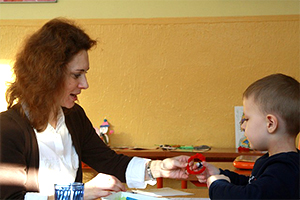High quality early education could help close the gap
 The Effective Early Education Experiences for Kids study, or E4Kids, found that only one per cent of Australian children experience high-quality instructional engagement with adults when they play.
The Effective Early Education Experiences for Kids study, or E4Kids, found that only one per cent of Australian children experience high-quality instructional engagement with adults when they play.
The E4Kids study tracked nearly 2500 three and four year-olds attending over 250 education and care services in Victoria and Queensland over five years.
Project Lead, Prof Collette Tayler from the Melbourne Graduate School of Education, said instructional teaching is fundamental to children’s cognitive development.
"High quality interactions with a child when they are playing may only take a few more seconds of adult time, but the payoff for the child’s learning is powerful,” Tayler said.
“By taking the time to have rich purposeful conversations with children during play, educators are helping to extend children’s vocabulary, language and thinking.”
The study also found that children living with disadvantage need these valuable interactions the most, yet they were the least likely to have access to high-quality programs.
“Most disadvantaged children live in areas where the market doesn’t provide them with the better quality education and care that they need,” Tayler said.
“Governments and authorities need to be more directive in closing these gaps. High quality early education, as well as early intervention programs, can have a huge impact on the trajectories of at-risk children.”
E4Kids was led by the University of Melbourne in partnership with the Queensland University of Technology, and funded by the Australian Research Council, and the Victorian and Queensland governments.